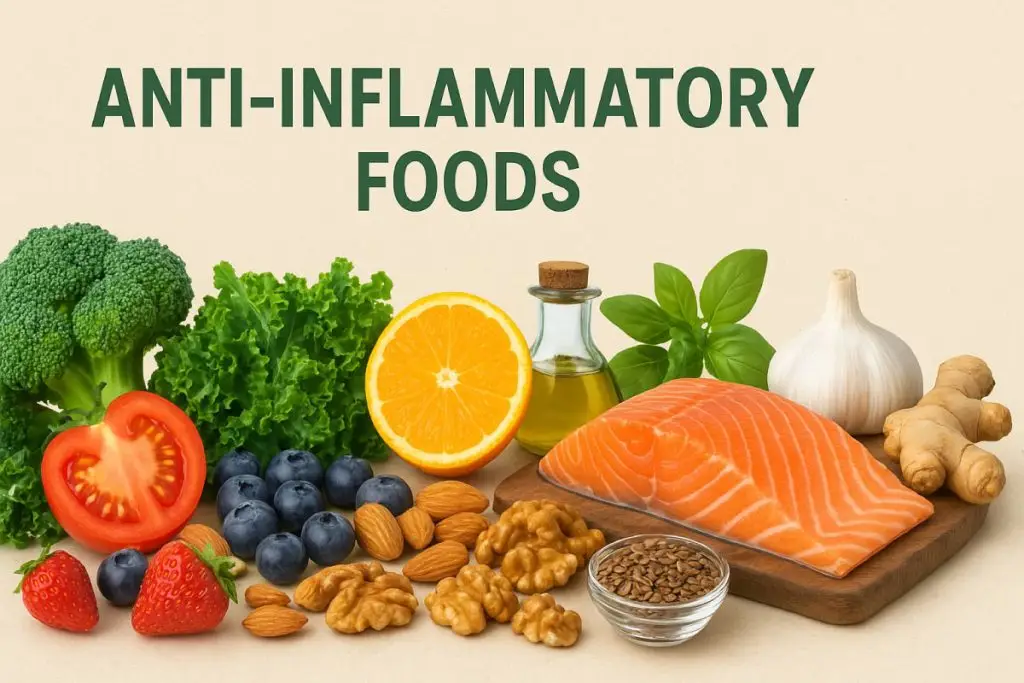🔍 Why Is “Inflammation” Important to Your Health?
Inflammation is a natural defense mechanism of the body that helps fight infections and repair damaged tissues. However, when inflammation becomes chronic, it can silently increase the risk of serious diseases such as:
-
Heart disease
-
Diabetes
-
Arthritis
-
Obesity
-
Certain types of cancer
That’s why eating foods that help reduce inflammation is key to maintaining long-term health.
🌿 Groups of Anti-Inflammatory Foods
1. Colorful Fruits and Vegetables
Rich in antioxidants and phytonutrients that fight inflammation, such as:
-
Blueberries, cherries, and red grapes
-
Dark leafy greens like kale, spinach, and broccoli
These foods help lower inflammatory markers and protect body cells from damage.
2. Fatty Fish (Rich in Omega-3)
Examples include salmon, tuna, and sardines.
Omega-3 fatty acids help reduce inflammation and support heart health.
3. Nuts and Seeds
Almonds, walnuts, flaxseeds, and chia seeds are packed with healthy fats, vitamin E, and fiber that help decrease inflammatory proteins in the blood.
4. Olive Oil
Extra virgin olive oil contains polyphenols that have natural anti-inflammatory effects similar to aspirin.
5. Herbs and Natural Spices
Ingredients like turmeric, ginger, garlic, and black pepper contain powerful compounds such as curcumin and gingerol that help relieve inflammation naturally.
6. Green Tea
Rich in catechins — antioxidants that help reduce cell damage and lower inflammation.
7. Whole Grains
Brown rice, oats, and quinoa help stabilize blood sugar levels and reduce inflammation caused by high insulin levels.
🚫 Foods That Trigger Inflammation
-
Sugary foods and desserts
-
Red and processed meats
-
Fried or fast foods
-
Highly processed vegetable oils (such as some soybean oils)
💚 In Summary: Eat to “Reduce Inflammation” and “Promote Long-Term Health”
The foods you choose every day can protect you from chronic diseases and help your body heal naturally.
Remember — every plate of food is an investment in your long-term health.




